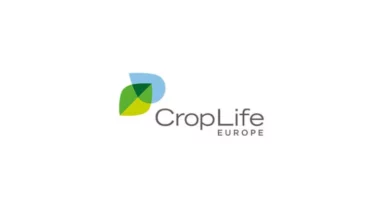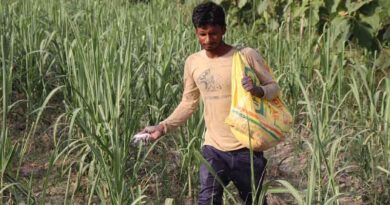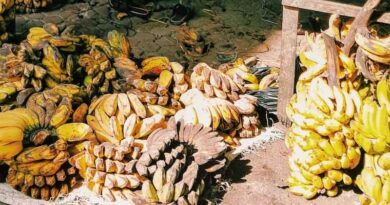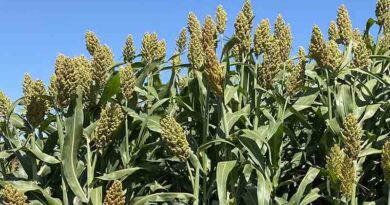Future ready Indian Agriculture: Illicit Seeds, Traceability and Blockchain realities
Guest Author: Chander Shekhar Jeena, Associate Director, Authentication Solution Provider’s Association (ASPA)
13 October 2022, New Delhi: It is estimated that almost 25 percent of seeds, pesticide and fertilizer market in India is counterfeit or illegal. Every year there is an obvious increase in illegal and counterfeit seed circulation, fraudulent labelling, intellectual property infringements, trademark infringements, regulatory offences and thefts of proprietary material.
In 2021 in Telangana, authorities seized more than 346 tonnes of fake seeds, mainly cotton and chilli. Which is just one of the many incidents that happen every year across various states. International Seed Federation has observed that up to 50-60 percent of specific crops are illegal in developing countries.
Impact of illicit seed practices on Stakeholders
Seeds form the most basic necessity of any economy and play a pivotal role in the global agri-food industry and healthcare as well.
Fake or spurious or substandard seeds are a huge burden on the economic well-being of Indian farmers who are anyways constantly struggling with enormous financial challenges. Indian farmers loose a considerable percentage of their production because of low quality or spurious seeds. Illegal seed practices mislead and exploit farmers.
Illegal seed practices happen in many forms; for instance, misrepresentation of grain harvested from hybrids as genuine hybrid seeds, labelling with false variety names, or minimum seed quality standards, like varietal purity or germination percentage, are not met.
In India, illicit seed practices are a leading cause for crop damaged which caused immense loss to farmers. A heart-breaking number of farmer suicides happened across the country due to loss of harvest.
Infringements are a horrible crime against legit seed companies. Realising that their hard work and research is being copied is a huge blow in itself along with loss of revenue and loss of goodwill.
Illicit seed practices are a huge blow to the Indian economy, they lead to tax evasion, corruption, food fraud which not only robs not only economic resources but also hurts the country socially.
The impact is such that it is estimated that we will need to produce 70 percent more food than current quantities which is questionable as there is a shortage of arable land. The only solution is to innovate and sustainably produce crops continuously while aggressively curbing illegal seed practices.
Challenges in fight against illicit seed practices
The biggest and most underestimated challenge is the lack of education and awareness in farmers, dealers, suppliers, etc across the supply chain. In the current scenario the fragmented plus complex supply chain is managed traditionally are vulnerable against criminal activities.
Lack of awareness, knowledge, focus, commitment in authorities, regulatory loopholes, and lack of specialised knowledge in law enforcement also give an opportunity to criminals to cheat the system. Due to these factors, it becomes difficult to find evidence and identify defaulters.
Technology and digitisation can effectively address most of these challenges and through widespread adoption of technology enabled solutions over a period the supply chain and as a result the ecosystem will become more secure. It will aid in weeding out counterfeits and enable traceability. To manage this menace sector-specified traceability software based on using QR Code or Bar codes can support a comprehensive anti-counterfeiting program.
Developments in India
Minor developments have happened in India towards improving the ecosystem, the Ministry of Agriculture in 2019 announced the introduction of the traceability system. A simple software enabled system where with the help of QR codes, farmers can trace quality and purity of seeds. In States developments, while Telangana hopes on blockchain to monitor the supply and quality of seeds, Jharkhand also announces implementation of blockchain to track seed distribution.
Traceability and Blockchain
Blockchain has been evaluated by various organisations and countries around the globe with the aim of improving traceability in agriculture. For example, in Brazil the SICPA blockchain based system is aimed towards enhancing seeds traceability and improve regulatory compliance. The OECD Seed Scheme explores how blockchain technology can boost security of existing paper-based seed lot identification and assist in traceability. But the use of blockchain technology in agriculture supply chain has its own challenges and risks, as any other emerging technology a lot of work needs to be done to harness its full potential. In developing countries these challenges are more severe owing to restricted financial resources, conservative approach in addition to less adoption of IT and digitisation in the sector.
Traceability technologies are a dependable solution but, Phygital (physical authentication + digital traceability) approach is recommended for a more effective change especially for industries that have higher risk of being targeted by illicit practices. The complicated supply chains need to be gradually secured against illicit trade with the application of layered solutions that are user friendly. And the first step towards this change needs to be taken now for a better and safer future.
Also Read: Indian farmers are using less agrochemicals shows data for FY2021-22
(For Latest Agriculture News & Updates, follow Krishak Jagat on Google News)















